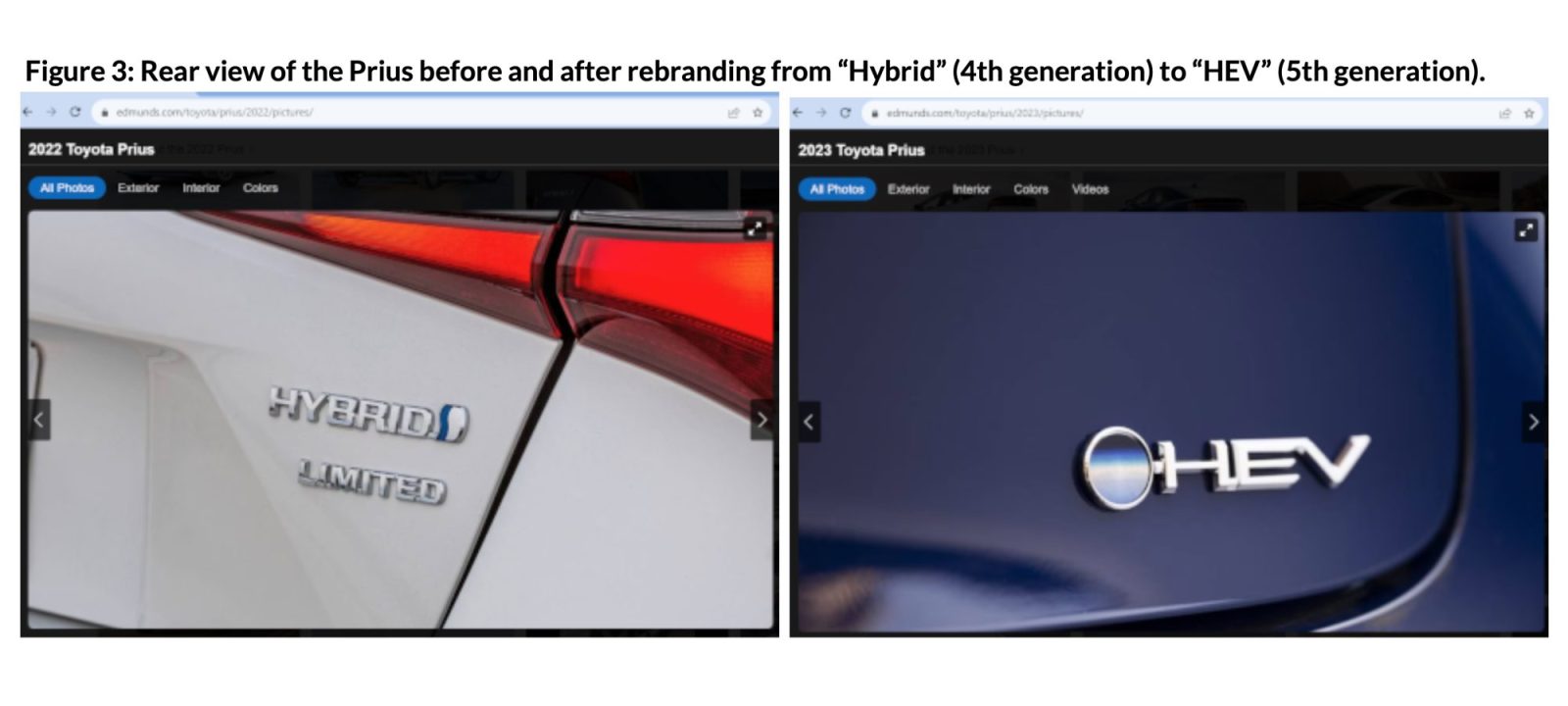
A new complaint with the FTC alleges that Toyota is engaging in false and misleading marketing of its vehicles, leading to consumer confusion over how “electrified” they really are.
Last month, we covered how Toyota’s greenwashing hasn’t really changed since its new CEO, Koji Sato, took over for Akio Toyoda.
Now, Public Citizen, the organization that we talked to for that story, has formally aired its grievances about Toyota’s tactics with the US Federal Trade Commission.
This is just an FTC complaint – the FTC has not yet opened or concluded an investigation. But the claims within the complaint are quite extensive, showing several examples of Toyota using misleading tactics to sow confusion about electric cars in the market.
The complaint lays out the argument that Toyota is far behind on EVs, that this threatens its market dominance and consumer loyalty, and that Toyota’s response has been to intentionally confuse customers about EVs and hybrids. It lays out the differences between EVs, hybrids, and plug-in hybrids, then describes several aspects of Toyota’s marketing of “electrified” vehicles that have intentionally confused those categories of vehicle.
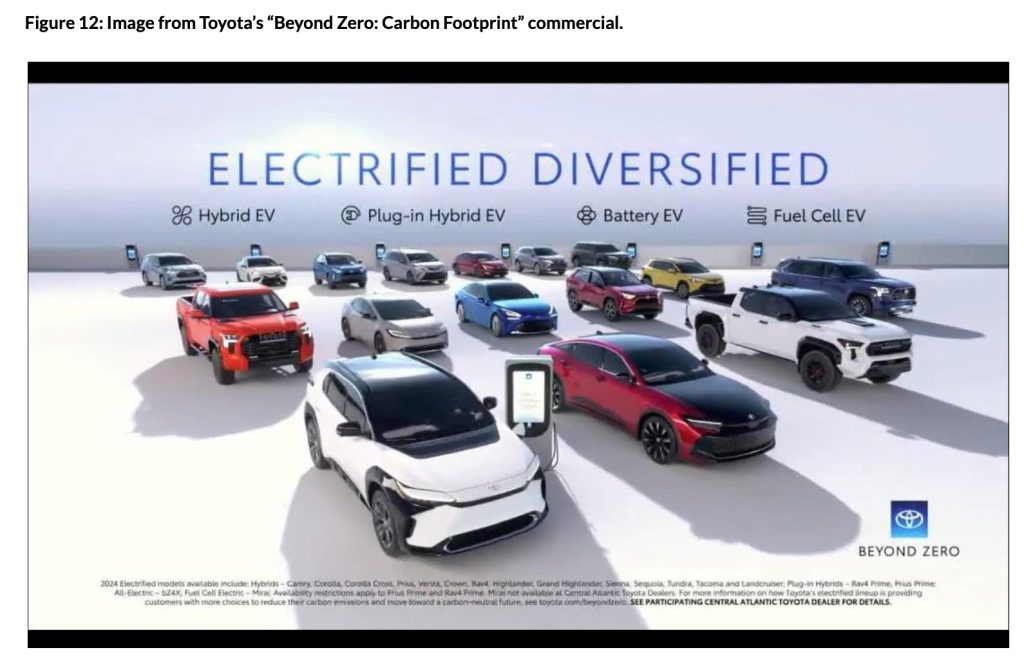
False advertising is a tough claim to prove in the US, but it is still within the FTC’s purview to ensure that consumers are not misled. If a company makes claims that are misleading to reasonable consumers and have a material effect on the competition, the FTC can act to stop the company from making these claims.
Public Citizen alleges that Toyota’s claims are material and deceptive to reasonable consumers. It also argues that Toyota is unique in the amount of deceptive marketing engages in, and that it specifically has violated FTC’s “Green Guides,” a set of marketing guidelines intended to ensure that companies don’t market products as environmentally-friendly when they are not.
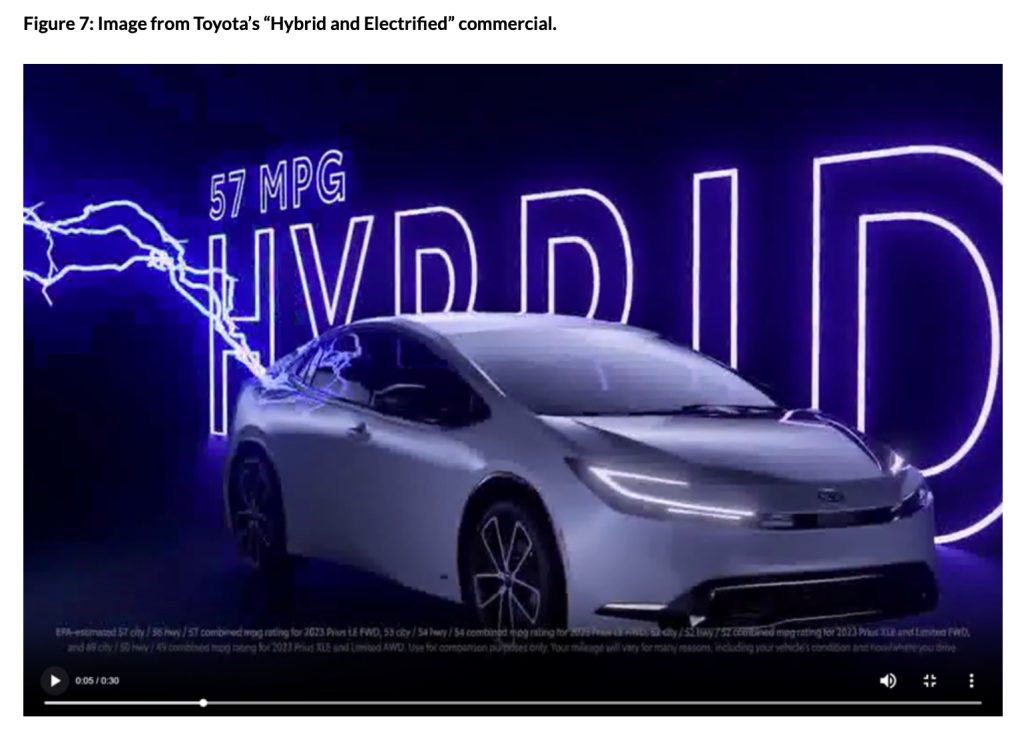
The complaint includes several specific advertisements that make Toyota seem like a leader in electric vehicles when it is not. These include:
- Images of a hybrid being shocked by a jolt of electricity, despite that conventional hybrids get all of their energy from gasoline.
- Images of a gas-powered hybrid driving next to solar panels (which can’t charge it) next to the words “carbon neutral” (which it is not).
- Using the word “range” to describe how far a hybrid can go on a tank of gas, instead of mpg as virtually all gas car advertisements do.
- A “To Each Their Own Electric” campaign, which includes several vehicles that run exclusively on gasoline.
- And the classic “self-charging hybrid” lie which got Toyota’s ads banned in Norway.
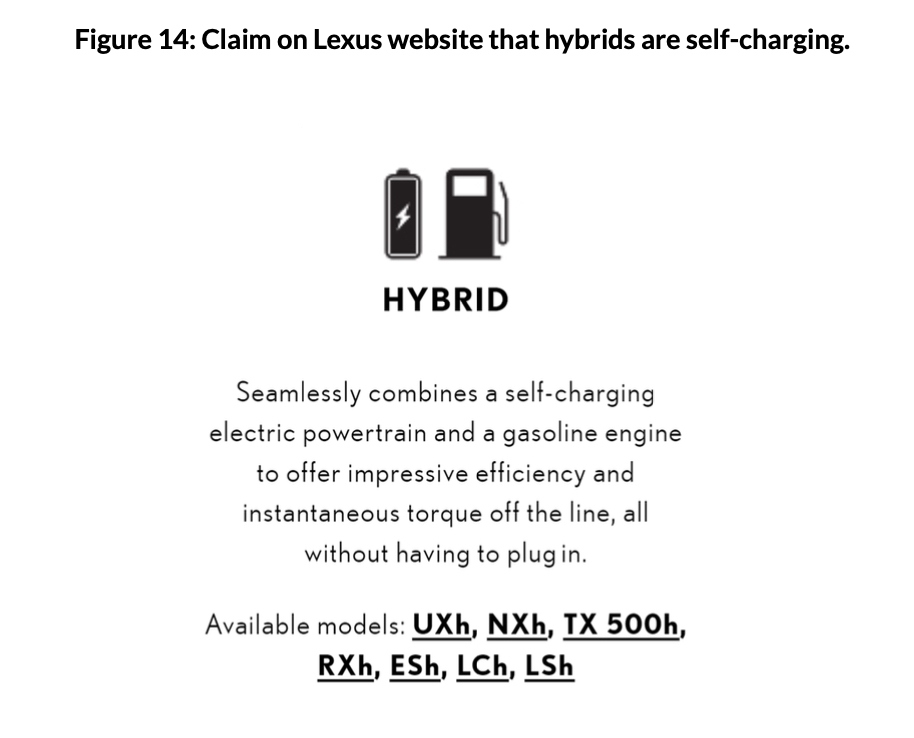
But the largest number of complaints involve the word “electrified,” which has been used as a weasel word by several manufacturers. It is often used to describe any vehicle that has an electric motor in it, but creates confusion in customers who don’t know the difference between conventional hybrids, that run fully on gasoline, and actual electric vehicles.
Toyota has used this word more than other brands – between claiming that it offers “more electrified vehicles than any other brand,” despite Toyota only having one full battery-electric vehicle; or its “electrified diversified” marketing campaign, suggesting that non-electric vehicles should somehow count as electric. While other brands do use the word in some announcements, they don’t generally craft entire marketing campaigns around it.
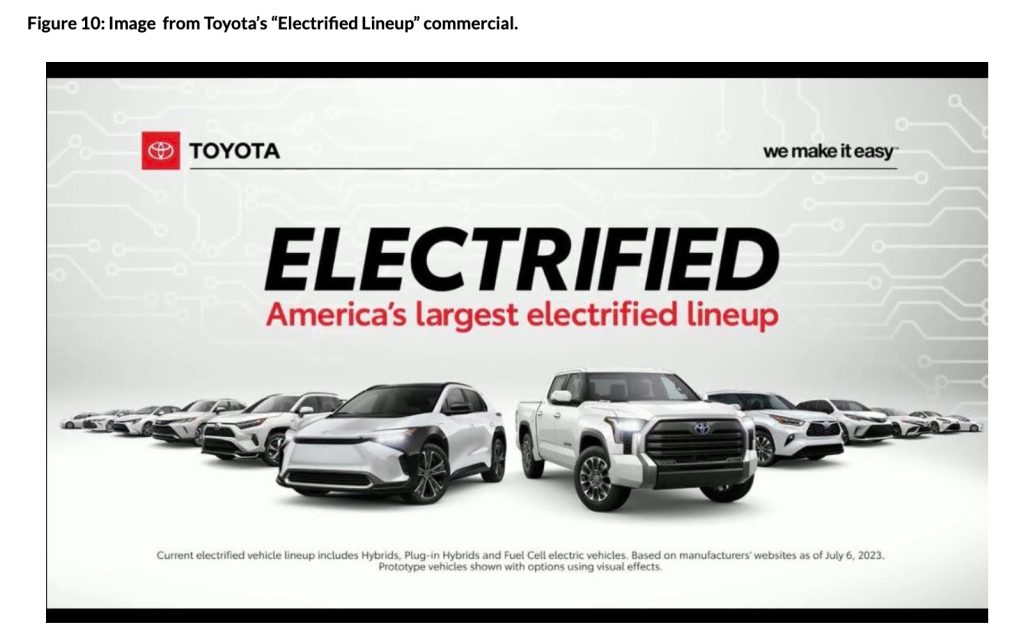
The complaint argues that these violations are harmful to the overall EV market, because they have created confusion among consumers and even industry sources, and that this is not a trivial violation because cars are typically the most or second most expensive thing that any person will own.
For these reasons, Public Citizen finishes out the complaint by asking the FTC to investigate Toyota’s marketing and develop specific guidance on EV marketing so that other companies cannot use the same tricks to mislead consumers about their products.
Electrek’s Take
We’ve made it clear many times, we’re not a fan of Toyota’s EV strategy. And a lot of the reason for that is their misleading marketing related to electric cars, which we’ve covered before here on Electrek.
The company has been one of the world’s biggest opponents to electrification and to better climate policy in general, on par with fossil fuel companies themselves.
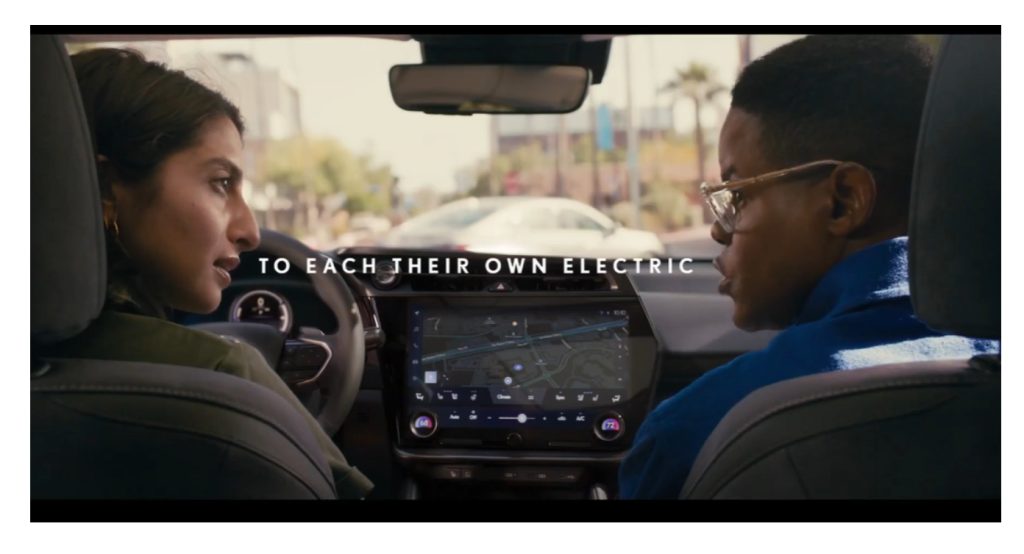
Top comment by EV_Wisconsin
Stating a range doesn't bother me and I would see that as a benefit as a consumer. I'd rather go as long as I could without getting gas - if I had to get gas (we have 2 EV, no ICE, no Toyotas). But the rest I can see why the complaint.
And with a massive company – one of the world’s largest – actively opposing climate action and sowing doubt in an automotive market where it holds outsized influence, I think it’s easy to tell how this can be harmful to the world.
The FTC complaint itself (you can find a PDF of the complaint linked on this page) lists several examples that we hadn’t heard of, and makes Toyota seem pretty bad.

But Toyota’s inaction isn’t just harmful for the entire world, it’s also quite probably going to be harmful for the economy of Japan. Even if we ignore the terrible effects of climate change and pollution that Toyota has thrown its weight behind, its intransigence on EVs is likely to cost the Japanese economy trillions.
Toyota has a new CEO, and that new CEO joined the company on the thinking that he would be able to improve the company’s EV strategy. That hasn’t happened yet, and Toyota is up to its same old tricks – but it doesn’t have to be, and it can change. It’s about time it does so.
FTC: We use income earning auto affiliate links. More.



Comments